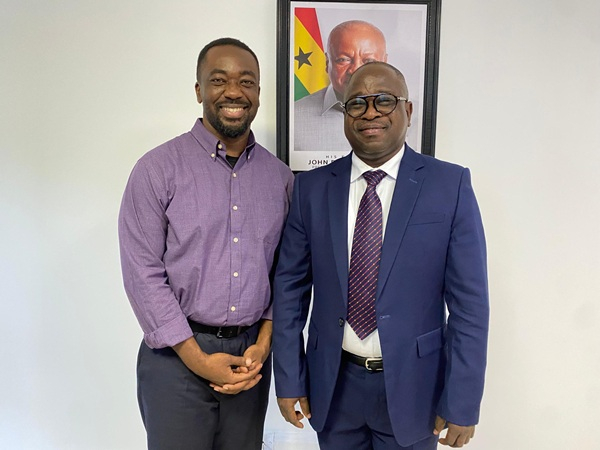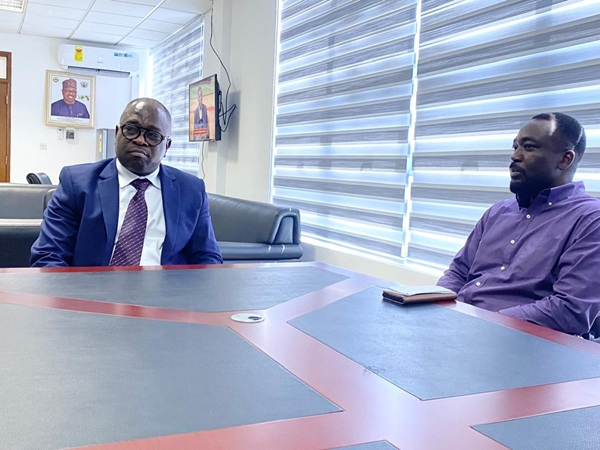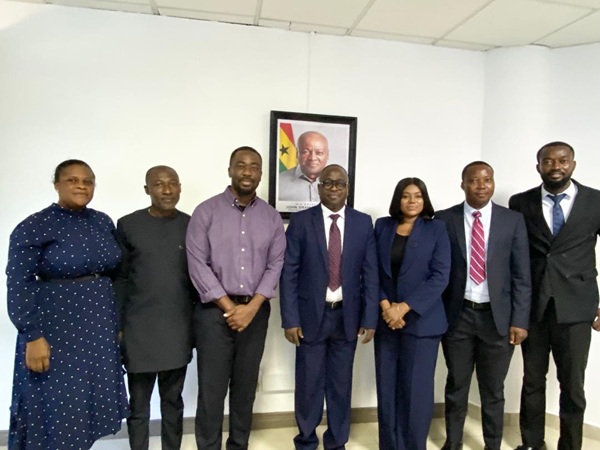 Minister of Climate Change and Sustainability, Issifu Seidu
Minister of Climate Change and Sustainability, Issifu Seidu
The issue of climate change is gradually becoming a canker that has reared its head in the country, and the government is taking measures to tackle this menace head-on
The Minister of Climate Change and Sustainability, Issifu Seidu, has emphasized that sensitizing Ghanaians about climate change in local languages is critical to the country’s fight against climate change.
He explained that addressing the behavioral patterns of locals and ensuring they understand the issue, including the impact of their actions on the environment, is an essential step in the right direction.
Additionally, the destruction of the country’s biodiversity is causing significant harm and must be halted in order to protect it for future generations.
Issifu Seidu noted that approximately 60% of Ghana’s population lives in rural areas. Therefore, presenting information in local dialects will help these communities grasp the seriousness of the issue and understand that their actions could endanger future generations.
He made these remarks during a courtesy call by David Antwi, the Chief Executive Officer of GhanaWeb, on Monday, February 17, 2025, at his office in the Office of the President Annex in Accra.
During the engagement, Mr. Seidu stated, “People must understand that certain actions can endanger future generations. It has to do with lifestyle changes and some sort of responsibility towards our environment. We need to understand that anything we do today endangers future generations…let the rural people know that climate change exists.”
“How do we let them know there are imminent threats related to climate change? Through the media…We cannot succeed without the media, except that we have to localize the communication. The conversation must be localized. People must understand that climate change is not a monster; it is real and affects our lives,” the Minister of Climate Change and Sustainability added.
On the subject of climate change financing, Seidu mentioned that investors are ready to invest in projects aimed at combating climate change, which could also contribute to the country’s development.
It’s worth recalling that during his vetting by Parliament’s Appointments Committee on January 31, 2025, Issifu Seidu expressed his commitment to introducing climate-resilient initiatives that would safeguard vulnerable communities and sectors in Ghana.
He stressed the urgent need for strategic interventions to address the escalating impacts of climate change on Ghana’s economy and environment.
According to a report by The Climate Reality Project, the country experienced a direct economic loss of an estimated US$95 million from droughts in 2020.
Furthermore, rainfall could decline by an additional 12% from 2020 levels by 2050, causing an average economic loss of US$325 million per year by that time.
Intense rainfall will also lead to flooding, which will have a significant impact on agriculture.
As of 2021, agriculture employs approximately 45% of the labor force and contributes about 21% of Ghana’s national GDP.
Most of these workers are engaged in small, rain-fed farms, which are particularly vulnerable to erratic rainfall patterns caused by climate change.
Higher temperatures may also affect crops, leading to lower yields and an increase in pests and diseases.
SA/MA
Below are some photos from the stakeholder engagement:



Watch the latest edition of BizTech below:
Click here to follow the GhanaWeb Business WhatsApp channel
